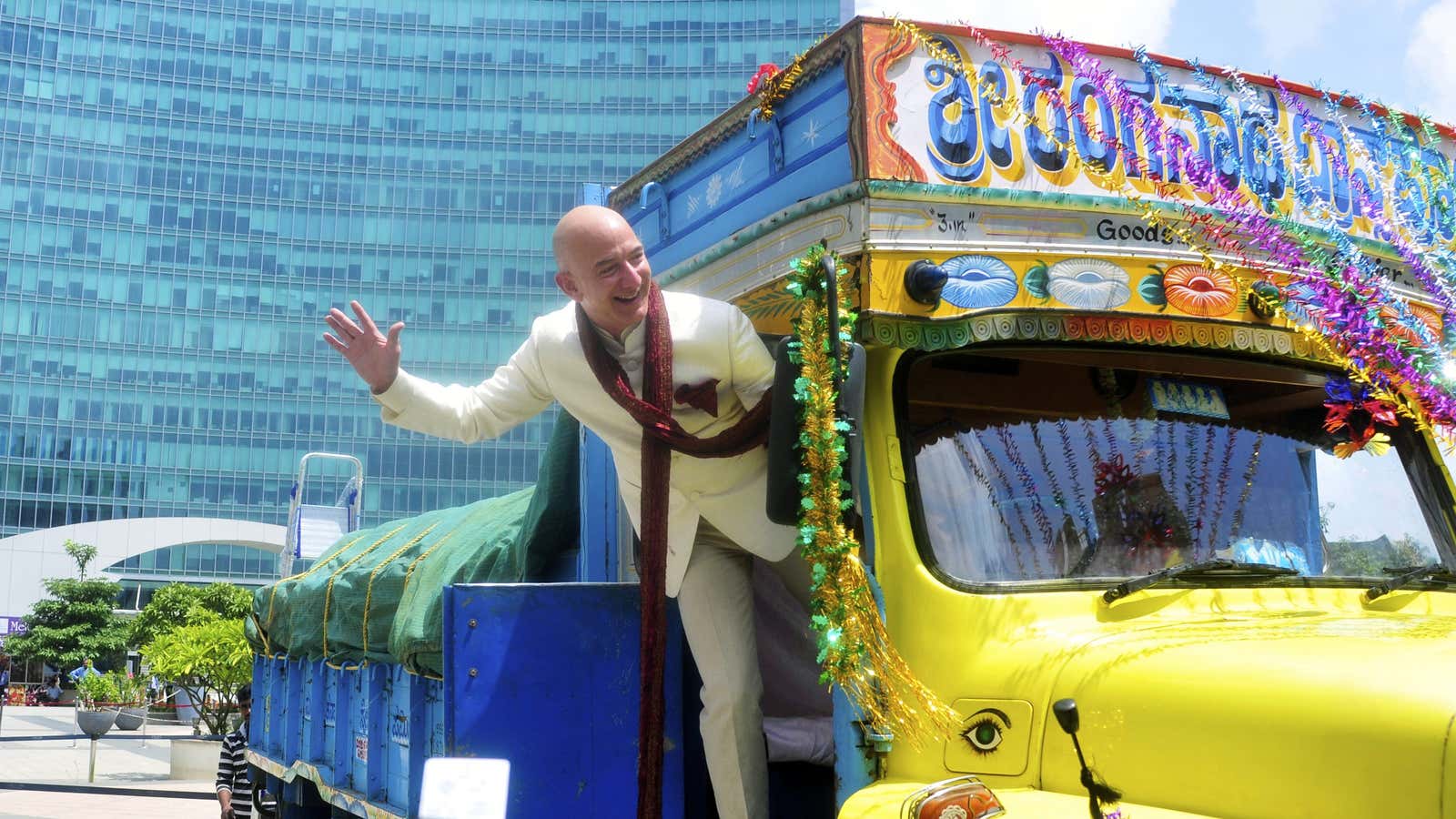Amazon is caught in the vortex of ill-tempered nationalism displayed by top Indian government officials on social media.
On Jan. 15, economic affairs secretary Shaktikanta Das accused the American e-commerce major of having an irresponsible attitude towards India’s national symbols and icons.
The senior bureaucrat in the Narendra Modi government was reacting to Amazon’s US portal selling flip-flops with imprints of Mahatma Gandhi’s photograph.
Das’s comments come just days after India’s foreign affairs minister Sushma Swaraj threatened to deny Amazon executives visas after it was pointed out that the company’s Canadian portal had put up for sale doormats with the Indian flag’s imprint on them.
Amazon delisted the doormats following Swaraj’s outburst on Twitter. The company’s India head Amit Agarwal apologised to her in a letter.
In June 2016, Amazon came under fire after it listed doormats with images of Hindu deities and the Quran on its website. The government did not get involved at that time.
Now, however, Indian officials are openly expressing anguish, though the items listed on Amazon are sold by third-party vendors and not Amazon itself. Besides, the said doormats or flip-flops were not being sold on Amazon’s India portal.
Such public threats do not help India’s investment-worthiness.
Seattle-based Amazon has made the highest bet on the country’s booming e-commerce sector, despite the fact that India ranks at a humble 130 among 190 countries in the World Bank’s ease of doing business list. The Jeff Bezos-led firm has promised to invest $5 billion here, far more than the investment attracted by its local competitors Flipkart and Snapdeal put together.
Don’t shame Indians
Minutes after his tweet condemning Amazon, Das explained that his remarks were made in a personal capacity and that, as a bureaucrat, he supported open trade.
However, by then the damage was done as Indian Twitter users were irked by Das’s “pseudo-nationalistic“ comments.
